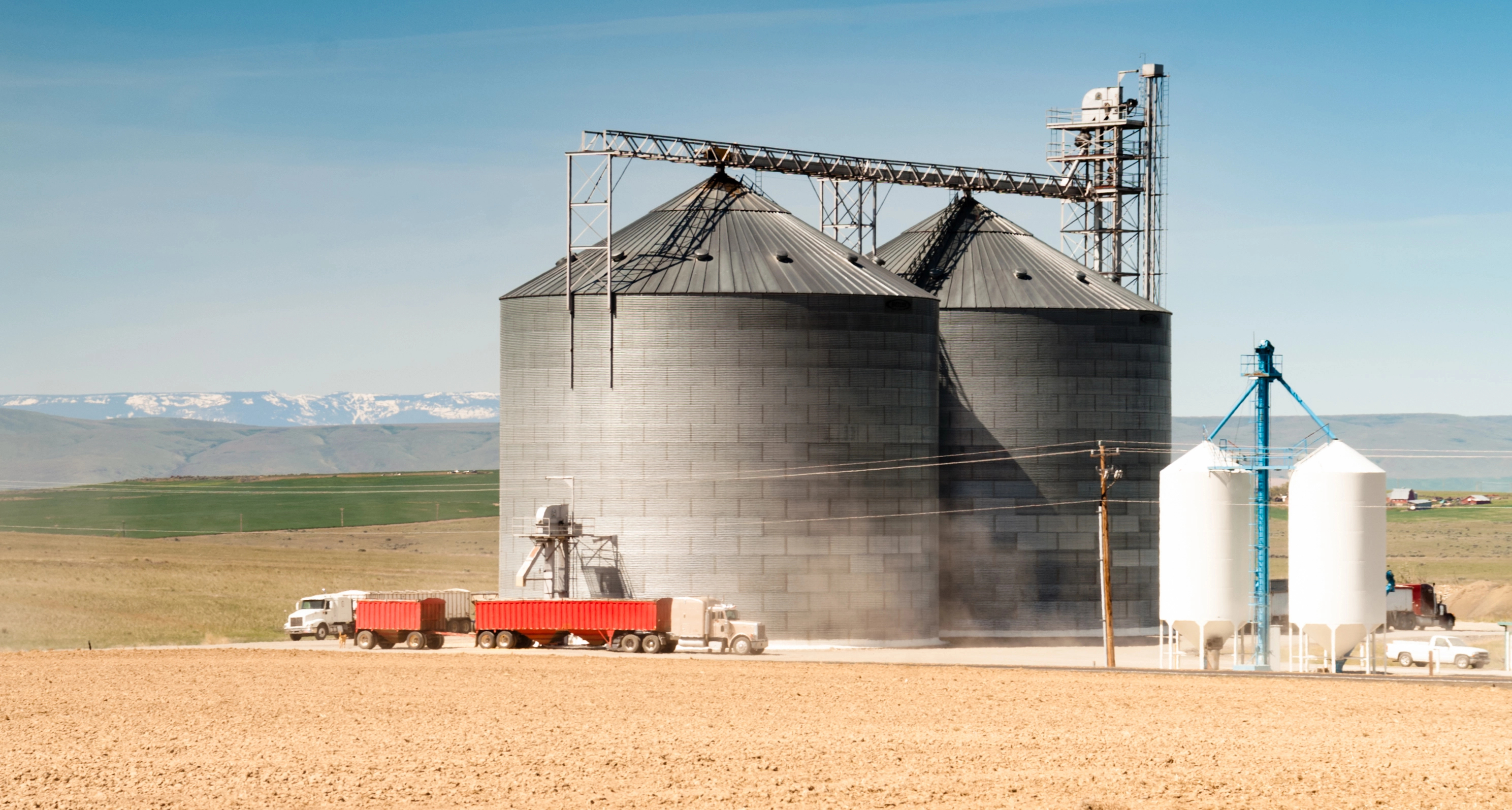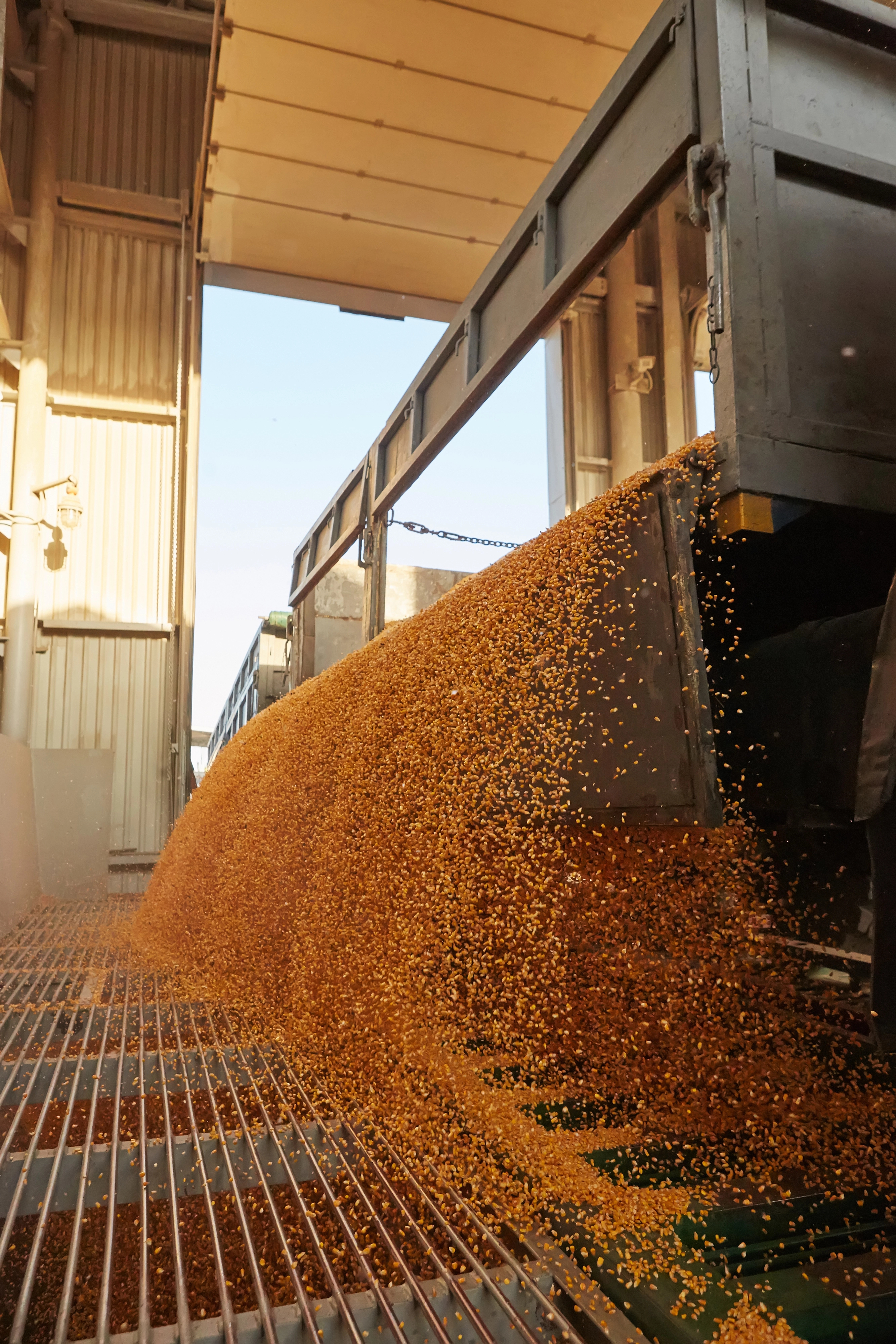Purchasing Grain - That's the Ticket - Part One
To the casual observer, it might seem that purchasing grain from a farmer at a country elevator is a simple task. In reality, there can be many complexities built into the process, that make it a challenge, including the following:
- Farm Splits
- Grade/Discounts
- Storage
- Contracting
- Unpriced Purchases
- Checkoff / Assessments
- Fees
- Contract & Ticket Advances
- Freight
- Weight Certificates
- Futures & Basis Pricing & Bid Sheet Pricing
At GSS, we support all of these features, and many more. The key to selecting grain software is to create automated processes that can shield your operators from these complexities, and enable them to concentrate on customer service. Operators should be managing the quality of the grain and customer relationships, not doing mathematics. With Agrosoft & AgExceed, we provide you with the tools to handle complex business cases efficiently & productively.

Automation Is Key
When a truckload of grain arrives, the software records scale tickets that log the gross, tare, and net weights. Integrated scale ticket functionality ensures real-time capture and automatic entry into inventory and accounting systems, reducing manual errors.
We have a built in scale screen in our system, which enables you to interact directly with the scale head and record the gross, tare, and net as they are computed. Or, if you can prefer, you can use the screens built into the scale, and use our user configurable interface to import the completed scale tickets into GSS.
Splits & Discounts
The use of automation extends to Farm Splits. Often farms are owned by multiple parties, or the work on the farm is performed by tenant farmers who are allowed to keep a portion of the proceeds. We allow you to enter an unlimited number of farm splits, each with their own pricing that can be kept segregated from the others. Providing this important service eases the accounting responsibilities for the farmer. It is important to be able to separate the splits and present each participant with only the pricing information that is relevant to their portion of the transaction.

Automating the computation of percentage of unit Discounts, percentage of price discounts, price per unit discounts, and the printing of grading certificates in a grain elevator significantly enhances the efficiency and accuracy of processing scale ticket information. Manual calculations are time-consuming and prone to human error, especially when handling large volumes of grain with varying quality, weights, and pricing structures. Automation ensures that discounts based on weight, quality, and market price are calculated consistently and accurately using predefined rules. This reduces discrepancies, disputes, and the need for rework.
Additionally, automatically generating grading certificates streamlines the documentation process by integrating test results directly with the scale ticket data, minimizing the chance for error. These certificates are essential for transparency and compliance, and automating their creation ensures timely and standardized documentation.
In addition, the software should automate the e-mailing of weight certificates, grading certificates, and settlement documents. This completes the cycle of automation, and eliminates the need to manually sort and mail documents.
Overall, this digitized workflow accelerates the processing of inbound and outbound grain loads, enhances data integrity, and improves customer trust and satisfaction by delivering precise, transparent results.
Storage
Grain accounting software can greatly simplify grain Storage management by allowing the use of customizable, user-defined storage plans. These flexible storage options enable grain elevators and cooperatives to tailor their billing structures based on operational needs and customer agreements. For example, storage plans can include Free Days to incentivize early delivery or promote customer loyalty. Cycle Billing can create other incentives to price the grain (5 cents a bushel every X number of days for 30 days, 10 cents after). We also allow for regular invoicing, such as monthly or quarterly, to help maintain predictable cash flow.
The software also supports Carrying Charge bonuses or penalties, set up on the contract, rewarding timely deliveries or penalizing delays, which allows you to maximize the revenue generated from your storage capacity.. Storage costs can be handled in multiple ways to suit business preferences. They can accrue monthly and be deducted from the final settlement price when the grain is sold, or charged upon withdrawal, making the system adaptable to both spot sales and long-term storage arrangements.
Additionally, the software can compute and generate invoices for storage charges on a regular basis or in a consolidated manner at year-end, reducing administrative burden and improving accuracy. This level of automation and flexibility simplifies complex tracking and billing processes, improves financial transparency, and reduces errors associated with manual calculations.
Ultimately, grain accounting software centralizes and streamlines the storage billing process, allowing operators to spend less time on paperwork and more time on value-added activities. It provides clear, customizable, and scalable solutions that benefit both the facility and its customers.

Contracting
GSS grain accounting software makes it easier and more efficient to apply grain purchases to predefined contracts by offering robust tools for managing different contract types and seamlessly integrating them into the purchasing workflow. Whether dealing with Priced Contracts, Basis Contracts, Hedge to Arrive Contracts, or Deferred Price Contracts—both Limited DP Contracts and Unlimited DP Contracts—GSS streamlines the process from contract creation to application and settlement.
The software allows users to easily set up and print contracts, and e-mail them to the farmer, giving both buyers and sellers clear documentation from the start. When grain is delivered, GSS enables users to quickly apply the purchase to any eligible contract associated with the customer. This includes the ability to select from a list of available contracts, simplifying decision-making and ensuring grain is properly allocated according to agreement terms. This flexibility reduces errors, speeds up processing, and ensures that each load of grain is tracked against the correct contract.

In addition, GSS allows users to make real-time price adjustments on contracts to account for contract fees or grade adjustments based on the actual quality of the delivered grain. This adaptability improves fairness, transparency, and customer satisfaction.
The software also provides tools to Cancel Contract balances, Wash Purchase and Sales Contracts, and maintain accurate contract balances, allowing for a clear understanding of your Contract Position. If the balance of the contract is insufficient to complete the sale, we also allow you to instantly set up contract overfills, or generate spot purchases, depending on your corporate policies and security. This capability is essential for managing a live position which is critical for effective hedging and risk management in volatile grain markets.
By maintaining real-time visibility into contract fulfillment and positions, GSS supports strategic decision-making and helps ensure compliance with contract terms, minimizing financial risk while maximizing margins.
Payment
GSS also provides automated functionality for facilitating payments, including the ability to generate ACH or wire transfer requests to your bank, or generate checks either individually or as a group. We also provide the ability to automatically e-mail both payment stubs and the appropriate settlement document to the producers.
Summary
GSS offers automated processes to support contracting, ticketing, the generation of weight and grade certificates, pricing the purchase, and generation of the settlement document, with e-mail support for each of these functions. In part two, we’ll discuss unpriced purchases, fees, and other fun topics, so stay tuned!
